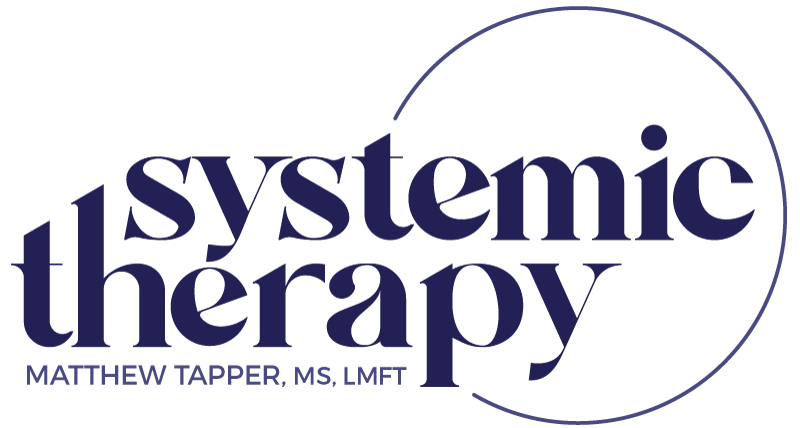Before Systemic thinking was applied to Marriage and Family Therapy, General Systems Theory had been applied to many existing processes across the universe. From studies of Anthropology, Biology, Agriculture and Economics to even Thermodynamics, we have to come to understand how all stability is maintained in a process of dynamic equilibrium (otherwise known as homeostasis). Now, understanding how human beings also exist in their own patterned processes, systemic thinking has become the foundation of Marriage and Family Therapy, offering a completely different perspective of mental health, relationships, and how to experience the change we’re looking for. From this lens, Individual problems like depression/anxiety or relationship issues are also maintained within a cyclical homeostasis. This means that despite our best efforts to fix or escape the problematic pattern, we tend to only feel even more stuck in it. According to systemic thinking, that’s due to how our best solutions to solve our experience of the problem have only been contributing to the cycle’s maintenance in a way that we can’t see or understand. My job is to put myself out of a job by helping you identify the cycle as the problem, as well as your contribution to it, then facilitate genuine change at the right level of intervention that allows you to break that homeostasis and establish a new one.
One key component of systemic thinking is making sense of the problem according to your lived experience, which allows us to have a more compassionate approach to the experience of the problem and how it makes sense why we would continue to navigate just as we have. Also, homeostasis acknowledges how everything is connected, indicating how there’s so much more impacting the cyclical problem than we can see. Experience from this lens has led me to already know there’s a way in which you make sense without having to label you as a problem.
I’m so passionate about this different way of thinking that you can probably feel it through my words. Ultimately that’s why I’ve started giving free consultations. I just want people to know what’s truly at the root of their feelings that they don’t know how to not feel. If you don’t find the consultation helpful, then you don’t have to see or hear from me ever again. There’s no charge, and no strings attached. However, if you happen to discover an entirely new way of seeing your problem, then in that very moment hope is born from concepts that you couldn’t have conceived. With that new perception of the problem also comes new solutions that are a part of your authentic way of relating, meaning that if you don’t have to think about how to be different mindfully… you simply are. Still, I can’t force this upon anyone, so the choice is yours. Even if you did decide against the consult, I genuinely couldn’t blame you. I already know there’s a way even that choice makes sense, and that you might not be ready for this kind of conversation. Either way, I say trust you.
– Matt

